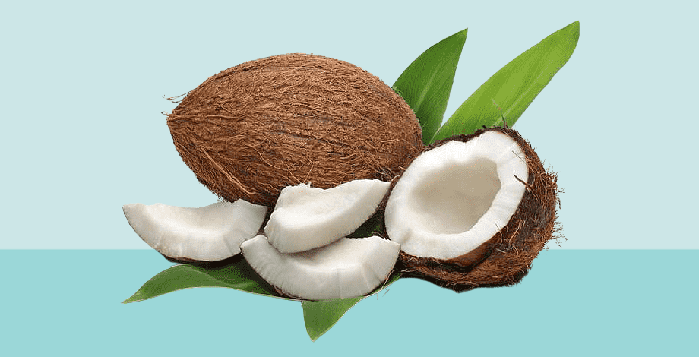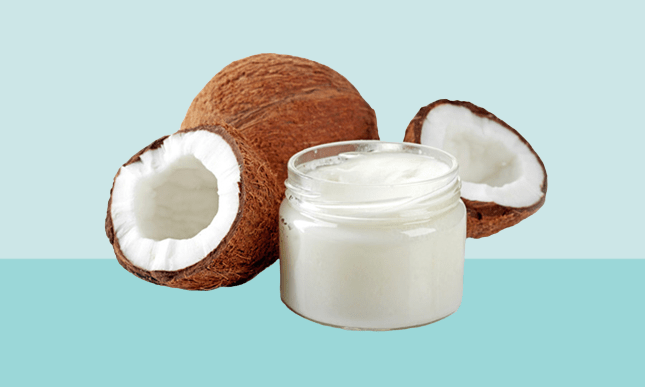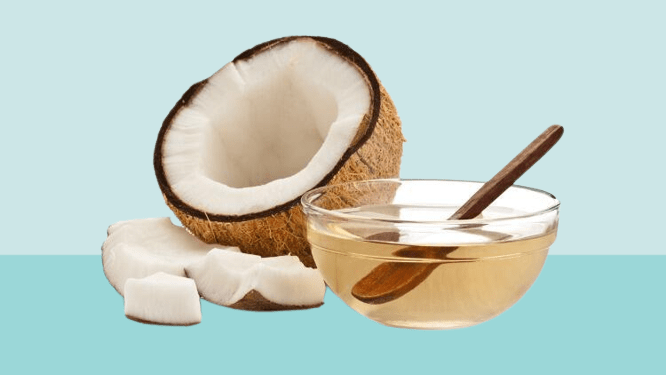How to use coconut oil? Coconut oil benefits
You can add it to your meals and consume it. It protects from diseases and keeps your body resistance high. To get the benefits, you can add 1 or 2 spoons of coconut oil to any dishes, liquid foods, cold and hot drinks. It is resistant to high temperatures like other vegetable oils. What does coconut oil do Where is it used? Where is coconut oil used? It can be used in meals, salads, desserts, skin and hair care, tooth and gum care, massage oil.
How much coconut oil should be consumed? Coconut oil accelerates the body’s metabolic structure and helps calorie burning and slimming. Coconut oil can be mixed with warm water and drunk on an empty stomach in the morning. Since the frozen fat content of coconut oil is high, the maximum rate for daily use is 2 tablespoons.
Which diseases is coconut oil good for? With these properties, coconut oil supports skin and oral health, facilitates weight loss by accelerating fat and calorie burning, strengthens the structure of the hair, regulates blood sugar and inhibits the growth of bacteria and infections. It is also known for improving the symptoms of dementia and Alzheimer’s.
Coconut oil is a natural oil extracted from the fruit of a tropical palm tree called coconut (Cocos nucifera). This oil has many uses and benefits, and many people use it in the kitchen, beauty and health. Here are some important uses of coconut oil:
Culinary Use: Coconut oil can be used in cooking and baking. It both adds flavor to meals and is a source of healthy fat. Especially in tropical regions, coconut oil is used as the main oil for meals and desserts.
Skin Care: Coconut oil is widely used in skin care. It can be used as a moisturizer on the skin and can help relieve skin dryness. It can also soothe skin irritations and strengthen the skin barrier.
Hair Care: It can be used in hair masks and conditioners to help hair look shinier and healthier. It can also be used to massage the scalp and can help reduce hair loss.
Teeth Whitening: Some people use coconut oil to whiten their teeth. For this process, it can be rinsed in the mouth for a few minutes and this can help teeth look whiter.

Body Lotion: It can be used as a natural body lotion. It is a good alternative for those who prefer to avoid chemical ingredients when moisturizing the skin.
Massage Oil: Can be used as massage oil. It provides a slippery surface on the skin and facilitates skin contact during massage.
Makeup Remover: Can be used to remove make-up. Care should be taken when using it on sensitive areas such as removing eye makeup. Benefits of coconut >>
Coconut oil can be used safely for most people. However, it is important for people at risk of allergic reactions to be especially careful. There are also some special instructions for use, which should be read carefully before using it inside. It is therefore important to consult a specialist or the product instructions before using coconut oil for any intended use.
Is coconut oil best for anti aging?
Coconut oil has gained popularity in recent years for its potential benefits for the skin, including claims that it can help with anti-aging. However, it’s important to understand that while coconut oil has some positive properties for skin care, its effectiveness as an anti-aging treatment may vary from person to person, and more research is needed to fully support these claims.
Here are some potential benefits of coconut oil for skin and anti-aging:
- Moisturization: Coconut oil is rich in fatty acids, particularly lauric acid, which can help to moisturize the skin. Well-hydrated skin can appear more youthful and supple.
- Antioxidant Properties: Coconut oil contains antioxidants like vitamin E, which can help protect the skin from free radical damage. Free radicals can contribute to premature aging of the skin.
- Wrinkle Reduction: Some people claim that applying coconut oil topically can help reduce the appearance of fine lines and wrinkles due to its moisturizing properties. However, individual results may vary.
- Skin Repair: Coconut oil may aid in skin repair and healing, which can be beneficial for addressing signs of aging.
Despite these potential benefits, there are some important considerations:
- Skin Type: Coconut oil may not be suitable for everyone, especially those with oily or acne-prone skin, as it can be comedogenic (pore-clogging) for some individuals. Patch testing on a small area of skin is advisable before using it on the face.
- Individual Variation: The effectiveness of coconut oil for anti-aging can vary widely from person to person. What works for one individual may not work the same way for another.
- Not a Miracle Cure: Coconut oil should not be considered a miracle anti-aging solution. It can be part of a skincare routine but should be used in conjunction with other anti-aging practices, such as sun protection, a healthy diet, and a proper skincare regimen.

For a comprehensive anti-aging skincare routine, it’s best to consult with a dermatologist or skincare professional. They can recommend products and treatments tailored to your specific skin type and concerns, and they can provide evidence-based guidance on which ingredients are most effective for anti-aging purposes.
Is coconut oil good for your face?
Coconut oil can be used on the face for certain purposes, but its suitability varies depending on your skin type and specific skincare needs. Here are some factors to consider when using coconut oil on your face:
- Moisturization: Coconut oil is a natural emollient and can effectively moisturize the skin. If you have dry or dehydrated skin, it can be beneficial in providing hydration and softening the skin.
- Antibacterial Properties: Coconut oil contains lauric acid, which has antimicrobial properties. It may help with acne caused by bacteria, but its comedogenic nature (tendency to clog pores) can be problematic for some people and may lead to breakouts.
- Anti-Inflammatory Effects: Coconut oil also has some anti-inflammatory properties, which can be useful for soothing irritated or inflamed skin.
- Makeup Removal: Some people use coconut oil as a natural makeup remover. It can be effective in breaking down makeup, including waterproof products, and gently removing them.
However, there are important considerations and potential drawbacks when using coconut oil on the face:
- Comedogenicity: Coconut oil is considered moderately comedogenic, meaning it has the potential to clog pores. If you have oily or acne-prone skin, using coconut oil on your face might lead to breakouts or exacerbate existing acne.
- Patch Testing: It’s advisable to perform a patch test before applying coconut oil to your face. Apply a small amount to a small area of your skin (e.g., on your forearm) and monitor for any adverse reactions, such as redness or acne breakouts.
- Sensitivity: Some individuals may be sensitive or allergic to coconut oil. If you experience itching, redness, or irritation after using coconut oil, discontinue its use.
- Sun Protection: Coconut oil does not provide sun protection. If you use it during the day, be sure to apply sunscreen afterward, as coconut oil may make your skin more susceptible to sunburn.
- Best Use: Coconut oil may be better suited for use as a body moisturizer or for other non-facial skincare purposes.

If you are considering using coconut oil on your face, it’s important to be cautious, especially if you have sensitive or acne-prone skin. It’s also wise to consult with a dermatologist or skincare professional to determine the most suitable skincare products and routine for your specific skin type and concerns. They can provide personalized recommendations based on your needs.
Is coconut oil unhealthy or healthy?
The health effects of coconut oil have been a subject of debate and research in recent years. Coconut oil is a source of saturated fat, which historically has been associated with negative health outcomes, such as heart disease. However, the specific type of saturated fat in coconut oil, known as medium-chain triglycerides (MCTs), has led to some discussions about its potential health benefits. Here’s an overview of the current understanding:
Potential Health Benefits of Coconut Oil:
- MCTs: Coconut oil is rich in MCTs, which are shorter-chain fatty acids that are metabolized differently in the body compared to long-chain fatty acids found in other saturated fats. MCTs can be rapidly converted into energy and are less likely to be stored as fat.
- Weight Management: Some studies suggest that the MCTs in coconut oil may help with weight management by increasing feelings of fullness and boosting calorie burning. However, the evidence is mixed, and the effects may be modest.
- Skin and Hair Care: Coconut oil is commonly used in skincare and haircare products for its moisturizing and protective properties.
Concerns about Coconut Oil:
- Saturated Fat: Coconut oil is still a source of saturated fat, and excessive consumption of saturated fat has been linked to an increased risk of heart disease. Some experts advise caution in using coconut oil as a primary cooking oil.
- Cholesterol: While some studies have shown that coconut oil may raise both good (HDL) and bad (LDL) cholesterol levels, the overall impact on heart health remains a topic of debate. The type and ratio of fatty acids in your diet also play a role.
- Caloric Content: Like all fats, coconut oil is calorie-dense. Excessive consumption can contribute to weight gain if not balanced with overall calorie intake.
- Individual Variation: People’s responses to coconut oil can vary. Some individuals may tolerate it well, while others may experience digestive discomfort or adverse reactions.
Conclusion:
The health impact of coconut oil depends on various factors, including your overall diet, health goals, and individual health status. It’s advisable to use coconut oil in moderation and as part of a balanced diet. If you have concerns about your heart health or dietary choices, consider consulting with a healthcare professional or registered dietitian who can provide personalized guidance based on your specific needs and health history. Additionally, focus on a diverse and balanced diet that includes a variety of healthy fats from sources like avocados, nuts, seeds, and olive oil.
Is coconut oil good for you skin?
Coconut oil is a versatile and commonly used product in skincare, and it can have several potential benefits for the skin:
- Moisturization: Coconut oil is an effective natural moisturizer. It contains fatty acids that can help hydrate and nourish the skin, making it appear softer and smoother. It’s particularly beneficial for individuals with dry or dehydrated skin.
- Anti-Inflammatory Properties: Coconut oil has anti-inflammatory properties, which can help soothe irritated or inflamed skin. It may be beneficial for conditions like eczema, psoriasis, or minor skin irritations.
- Antioxidant Effects: Coconut oil contains antioxidants, including vitamin E, which can help protect the skin from free radical damage. Free radicals can contribute to premature aging and skin damage.
- Skin Barrier Repair: The fatty acids in coconut oil can assist in strengthening the skin’s natural barrier, helping to prevent moisture loss and protect against external factors like pollution and UV rays.
- Makeup Removal: Coconut oil is sometimes used as a natural makeup remover. It can effectively break down makeup, including waterproof products, and gently remove them.
- Hair and Scalp Benefits: Coconut oil can be applied to the scalp to help with dandruff and dryness, and it is also used to condition and nourish hair.
However, it’s essential to note that coconut oil may not be suitable for all skin types and conditions. Here are some important considerations:
- Comedogenicity: Coconut oil is considered moderately comedogenic, meaning it has the potential to clog pores. If you have oily or acne-prone skin, using coconut oil on your face may lead to breakouts. It’s important to perform a patch test to check for any adverse reactions.
- Individual Sensitivity: Some individuals may be sensitive or allergic to coconut oil. If you experience itching, redness, or irritation after using coconut oil, discontinue its use.
- Sun Protection: Coconut oil does not provide sun protection. If you use it during the day, be sure to apply sunscreen afterward, as coconut oil may make your skin more susceptible to sunburn.
- Best Use: While coconut oil can be beneficial for many people, it may be better suited for use as a body moisturizer or for other skincare purposes rather than as a facial moisturizer, especially if you have acne-prone skin.
Before using coconut oil on your skin, it’s a good idea to consult with a dermatologist or skincare professional, especially if you have specific skin concerns or conditions. They can provide personalized recommendations and help you determine whether coconut oil is suitable for your skincare routine. What is coconut used for? >>
How to use coconut oil in the morning on an empty stomach? Pure Coconut Oil supports the balanced secretion of insulin by balancing blood sugar. It can also help strengthen the immune system, you can use 1 teaspoon a day before breakfast in the morning. You can use Coconut Oil as a wood polisher.
Does coconut oil melt belly fat? Coconut and oil: Coconut oil, one of the healthy fats, is also used in melting the belly. Coconut oil, which balances hormones, increases the metabolic rate by ensuring the regular functioning of thyroid hormone. It also suppresses the desire to consume more food.






Coconut oil benefits